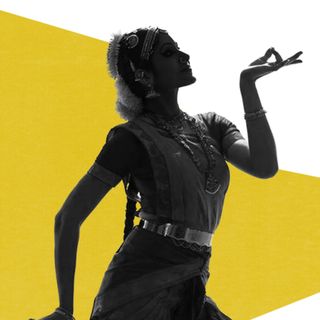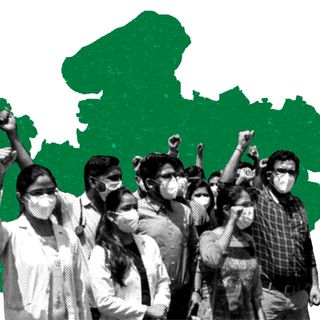In an important judgment, the Madras High Court on Monday issued a set of comprehensive guidelines to sensitize the society and various institutions, including the police and judiciary, about the rights of the LGBTQIA+ community — urging people to unlearn their biases and respect these rights.
Justice N. Anand Venkatesh was responding to a plea by a lesbian couple who sought protection from their relatives. He noted the while the Indian law decriminalized LGBTQIA+ relationships in 2018, society is yet to accept these unions — the lack of social acceptance often results in people from the community facing hostilities. “…the actual problem is not the fact that the law does not recognize a relationship, but that the sanction that is accorded by the society is not available,” he said, according to LiveLaw. He also noted that the oppression of and discrimination against India’s LGBTQIA+ population necessitates laws to ensure their protection.
However, in the absence of concrete legislative enactments safeguarding their rights, he has put forth a set of guidelines to not only protect the queer community from instances of police harassment, but also ensure their holistic integration into society — until “law takes over and guarantees safety and protection.” These guidelines would apply to the judiciary and police, along with educational institutions and physical and mental health professionals. According to him, “till the legislature comes up with an enactment, the LGBTQIA+ community cannot be left in a vulnerable atmosphere where there is no guarantee for their protection and safety.”
To prevent harassment of members of the LGBTQIA+ community by law enforcement authorities, the guidelines recommend awareness and sensitization programs for both the judiciary and police personnel. In addition, to ensure that incarcerated members of the transgender and gender non-conforming communities aren’t subjected to sexual assault in prisons, Justice Venkatesh recommended housing them separately from cis-men.
Further, to ensure that queer individuals aren’t discriminated against by their own families, the guidelines direct schools and colleges to organize sensitization programs for family members.
Related on The Swaddle:
What It’s Like to Be Openly Queer and Exist Within an Indian Family
Educational institutions, however, are often the very places where queer students are bullied by peers and other staff. In order to reduce the likelihood of such instances, the guidelines have directed institutions to make gender-neutral restrooms available — although the transgender community has often argued the measure can serve to otherize an already othered group.
Other directions by the court include adding “transgender” as a column in application forms for admissions and examinations, and allowing transgender students to update their name and gender on academic records.
The judgment has also explicitly banned medical interventions like ‘conversion therapy‘ — a pseudo-scientific process intended to change the sexuality, or even gender identity of queer individuals — one instance of which resulted in a young bisexual woman committing suicide last May after she was forced to undergo it. At present, India doesn’t have any law explicitly banning the practice, but the judgment has called for strict action against practitioners offering such interventions, including revoking their medical license.
In the past, too, Justice Venkatesh had admitted to making efforts so that he could move away from his “preconceived notions” on the LGBTQIA+ community — setting an example to judicial peers, as well as citizens, who clutch on to their prejudices and refuse to accept the diversity of gender and sexuality.
“I have no hesitation in accepting that I too belong to the majority of commoners who are yet to comprehend homosexuality completely,” he noted. Growing up in a patriarchal, heteronormative society like India often instills unconscious biases against people and experiences beyond what is deemed “normal.” The court notes that acknowledging this is critical and will encourage people to do better.
A key idea the court echoes is that of questioning ingrained prejudice. Just like one of the basic tents of jurisprudence states that ignorance of any law cannot be used as an excuse to disregard it, Justice Venkatesh remarked that “ignorance [of the gender and sexuality spectrum] is no justification for normalizing any form of discrimination.”




